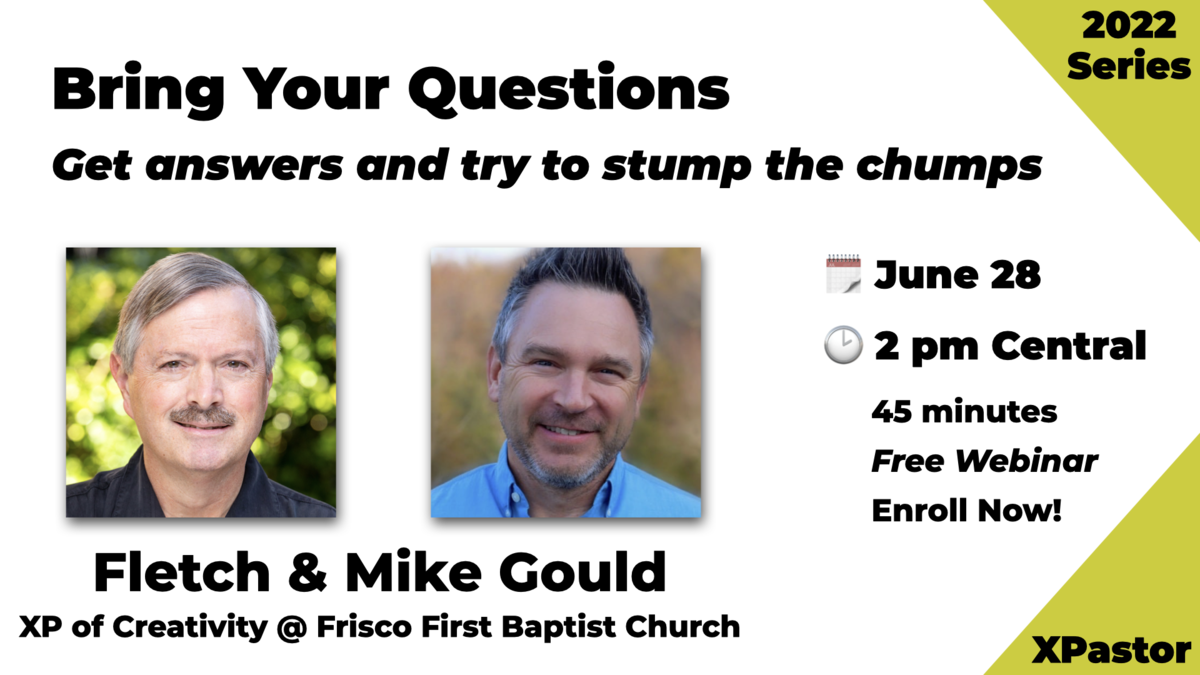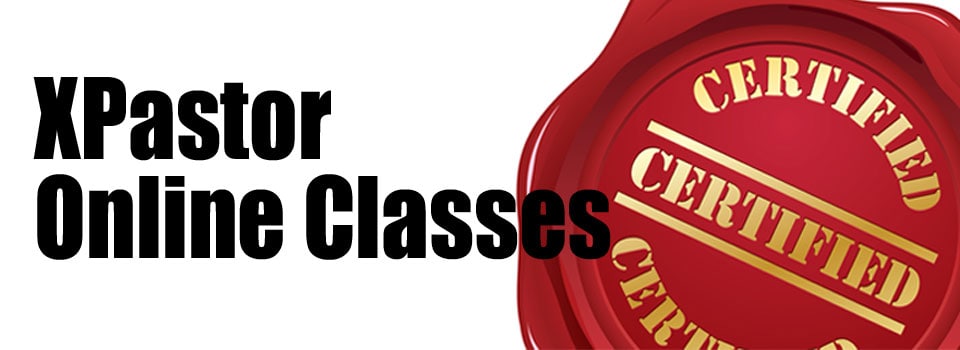Like it or not, Executive Pastors are coaches. You can embrace your role as a coach and improve your effectiveness by coaching your team.
I’ll admit it. The word coach used to make me cringe. And on my coaching journey, I made a few other people cringe along the way.
As a pastor, once I was equipped with the self-bestowed title of coach, I suddenly felt free to bring the weight of “coaching” to my staff and some of my key volunteers. Since they really had no choice in the matter, recruiting them as “clients” was pretty straightforward.
“Hey, I want you to come see me once every other week so I can coach you and help you do your job better.”
With every person I coached, I learned more about what worked—and what didn’t work.
People put up with me and my newfound zeal for coaching for a couple months. I hadn’t developed custom coaching yet, so my one-size-fits-all approach simply didn’t fit. And I even managed to offend some people in the process.
One of my staff was so uninterested in the opportunity to be coached by me that we agreed to limit our one-on-one meetings to once a month … for a maximum of five minutes … and not even sit down!
My wife, Dianne had a similar reaction to my “coaching.” And I finally learned a key lesson: not everyone wants to be coached … by me.
But as time went on—as a Senior Pastor and XP—I added more and more tools to my toolbox, found proven ways to customize my approach, and constantly improved them based on every coaching experience.
You can learn from my mistakes, and my new book explores what it takes to see lives transformed. Embracing your opportunity to coach in your XP role can make a positive impact on your church, and on your growth as a leader.
What Is Coaching?
To be effective, and experience real coaching success, you must be very confident and comfortable in your initial interactions with staff and volunteers. After a few years, I developed my own definition:
Coaching is the intentional effort to come alongside another person to help them experience their full potential. It is a forward-thinking activity that uses a combination of questions, encouragement, growth exercises, truth telling, and accountability.
Coaching is:
- Growth assignments versus suggestions.
- Agreed upon accountability.
- Pushing and pulling forward versus merely being on a journey together.
- A defined set of coaching objectives.
- It’s about progress versus presence.
Sounds like an Executive Pastor, right?
Effective XPs Are Truth Tellers
At our companies, Lead Self Lead Others and Real Coaching Success, we have a stronger expression of truth telling and hold clients accountable to move forward. There are various schools of thought regarding whether or not to let the person you’re coaching discover the answer themselves.
We teach a different approach. If we see something they need to discover about themselves or next steps they need to take, we simply tell them!
One of our company values is: “We are truth tellers. We value client discovery but we do not shy away from telling them the truth. We believe truth is what people are really seeking.” Wouldn’t you agree?
Coaching is about helping a person continue to move their story forward. Life is a journey through various seasons that affect us in different ways. It is normal to get stuck, disoriented, and distracted from our true purpose and potential.
A great coach—and a great pastor—has professional curiosity. We are curious and interested in a person’s story, their current reality, their potential, and whether or not they have a vision for their life.
XPs Lead Themselves Well
Have you heard the joke about the pastor who was always late to meetings, but was relentless in holding his staff accountable for their time management? Me neither. Because it’s not funny.
Do you want real coaching success? Then you need to lead yourself well.
If you don’t lead yourself well, you can’t lead others well. Pastoring is such an other-oriented exercise, it’s best to have yourself taken care of and out of the way. If you’re not managing yourself very well, you will be a distraction.
We define self leadership as stewardship. In other words, what are you doing with what you have been given? Do you know what to do, when to do it, and are you willing to do it? XPs who lead themselves well consistently answer yes and demonstrate a pattern in their work week that affirms their answer. Their lives model intentionality—living on purpose, for purpose.
The only way you can really be good at coaching your staff is to always be observing, listening, and actively processing what you are experiencing as you engage. If you do not take care of yourself emotionally, physically, and spiritually you will be distracted in the engagement.
The goal of self leadership as it relates to coaching and pastoring is to lead yourself out of the way so you can focus on the people you serve.
In a survey we conducted with over two thousand respondents, they indicated the five most important areas of their lives that required high levels of self leadership: habit, health, relationships, time, and money. Knowing this has informed our coaching practice and helped us move people forward in all areas.
Coaches with high levels of self leadership are defined by the following: they know what to do, when to do it, and are willing to get it done. They put themselves in a position to coach others well. They have become committed to living up to their full potential which can only be accomplished by living an intentional life.
Leading Yourself Means Preparation
Successful coaching reminds me of watching an Olympic track and field event. The athletes don’t just walk up to the line and wait for the starting gun. They perform dozens—maybe hundreds—of mental and physical movements to prepare (in addition to the years of disciplined training that brought them this far). Once in position, they take time to place their feet and fingers in the precise location they need to begin the race well. This is a picture of what a good coach does—or should do—prior to every meeting and engagement with staff or volunteers.
When the client enters—boom!—it’s on. An impactful coaching session starts way before the meeting. Just like a fruitful church service is the result of dedicated stewardship, Monday through Saturday. That’s self leadership in action.
Sometimes It Is about You
Coaching isn’t about you, but sometimes it is about you. We can model self-leadership—and the struggle—by sharing personal experiences, successes, and failures. When you’re all-in on the journey of leading yourself well, you’ll have valuable insights to share with others.
If I’m working on goal setting with one of my clients, I might say, “Let me tell you one of my goals for this year …” This exchange lets them know I’m on the journey, too. Or I might share an area where I’m pushing myself, which will explain why I don’t feel sorry for them—or buy their excuse—at the moment. You can’t offer any stories or helpful lessons if you’re faking it and not living it.
One of the biggest mistakes in coaching and pastoring is presenting yourself from the perspective of who you want to be instead of who you really are. Others can sense your lack of confidence and comfort.
We have a hunch that you as a human being have a certain ability. It’s a God-given ability to discern whether or not someone is authentic. We all can sense, at some level, when a person is trying to hide something or has insecurities. The point is your staff can sense, at some level, if you’re not leading yourself well. Your team must be extremely comfortable with who you are, and this starts with you being comfortable with how you’re leading yourself.
Lead Yourself by Being Yourself
One of the best ways to figure out who you are is to be really clear on who you’re not. Chisel away everything you’re not and—voilà—there you are! Coach from your natural personality.
When you know—and intentionally operate in—your unique personality, you’ll connect with your natural giftedness, which will help you be more effective as a coach. Coaching is challenging enough on its own. Why make it harder by trying to coach in a style you picked up from someone else?
This has been our criticism of many coaching certification programs. They use a one-size-fits-all training and do a poor job of helping the coach truly understand who they are—which has a direct bearing on their style of coaching as well as who their target clients should be.
The key is to focus on the coaching objectives and then use your instincts and skills to move towards the objectives.
Lead yourself well by being yourself.
XPs Have a High Calling
We often give our coaching team at Lead Self Lead Others the following motivational speech: “Be awesome or don’t coach.” This is the same standard Dianne and I hold ourselves to during our daily company debrief. The last thing we want to do is report how we did a good job coaching that day; we want to share stories of delivering excellence.
We’re not just making candles here. Remember, coaching is the intentional effort to come alongside another person to help them experience their full potential. Pastoring—which includes coaching—can change peoples lives for the better.










